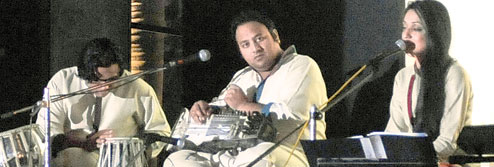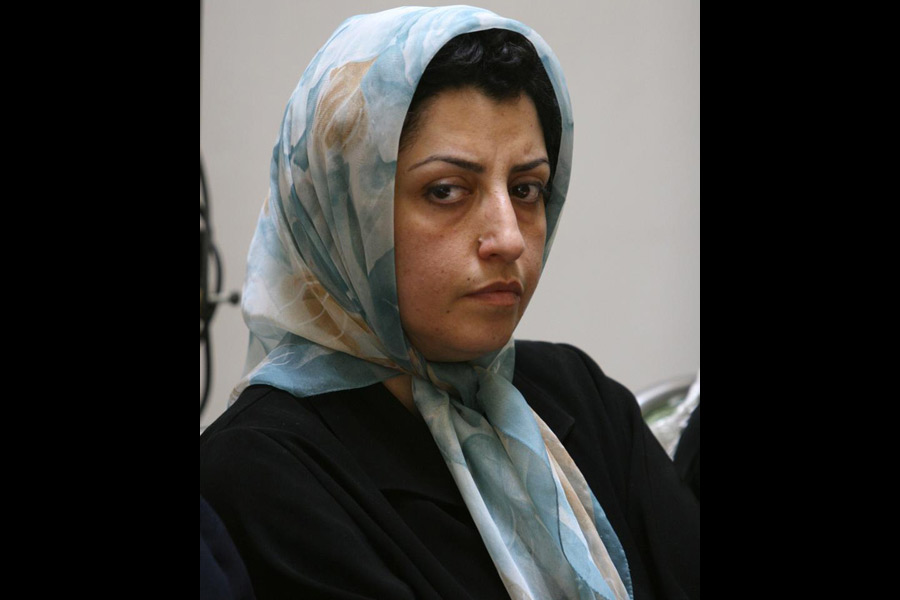 |
Sonam Kalra of The Sufi Gospel Project was in town on Sunday evening, performing to a full house (made fuller with Bappi Lahiri and half the city’s who’s who in the audience) at the newly-opened lawns of Guchhi at Hyatt Regency. Part of ‘An evening with Anantara and Hyatt Regency’, she brought together a fluid blend of musical traditions — Khusrau with Amazing Grace, Kabir’s dohas with Abide With Me and Bulleh Shah’s poetry intertwined with English and Gaelic texts. “Sonam is very talented but there is barely any exposure. I didn’t expect such a surprise waiting for me when I came down for the pre-Christmas celebrations,” exclaimed Bappida, after the performance. t2 caught up with Sonam for a chat...
What is your music all about?
The idea is to break preconceived notions of what can or should be. So if someone says Sufi-Gospel, how are you putting together these two opposing strings, I say, “They aren’t opposing, it’s just that we decided that one is this and the other that.” Spirituality is about universal love; religion is something we have created to define barriers.
 |
| Bappi Lahiri and Brandon de Souza with wife Nandita |
When did you realise this?
I think it was always there. It wasn’t like suddenly I woke up and oh! the light bulb came on… (laughs) It also comes from my family. Though I don’t like to say I belong to any religion, I think my being a Sikh helps.
Are the songs written by you?
No. I have taken traditional gospel songs like Amazing Grace and Abide With Me and blended them with Sufi works. I translated Amazing Grace into Urdu, so yes, that’s ‘written’ by me. For Abide With Me, we used a piece by Kabir but it was composed by us, the group. All the compositions, the arrangement, the patterns are original.
How did the six of you come together?
I was working with Alex (Fernandes), my pianist for a while. We used to do jazz... we still do. Then we started doing gospel shows and I had to sing at the dargah of Inayat Khan. At one point, I thought let’s try a sarangi player and we did. The whole time I kept saying to myself, “Wow, it sounds nice, something is right about it.”
Tell us a bit about your Calcutta connect...
My grandfather, General Jagjit Arora, was the head of Eastern Command in Calcutta. In the 1971 Bangladesh War, he got Niazi to sign the surrender, so he was the hero of the war. My naniji and nanaji lived here and I remember frequenting the city as a child.
A few years ago, we did this play, Nati Binodini, directed by Amal Allana, chairperson of National School of Drama. We read her Amar Katha and improvised scenes and weaved in the ethos of Calcutta and Bengal. When we staged it in Calcutta, we got wonderful reviews. Every artiste is in a way afraid of coming to Calcutta because people understand music and art here. So when I get appreciated here, it means a lot.
How was performing at Saifeena’s wedding reception?
It was a lot of fun. It was really intimate, not in terms of the number of people but the way they did it so elegantly, and in a completely relaxed setting. I performed jazz and also sang a piece called Kesariya balam. By the end of the evening everyone was dancing. Saif and Kareena sat right in front, swarmed by people congratulating them. The whole thing was surprisingly not very daunting.
Sreyoshi Dey
Pictures: Pabitra Das










